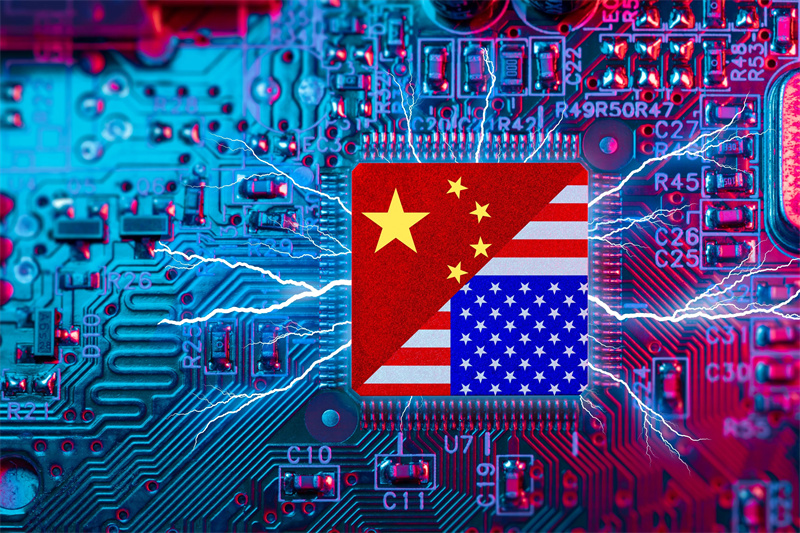On October 8, 2025, the U.S. Department of Commerce's Bureau of Industry and Security (BIS) added 26 entities and three Hong Kong addresses—including 16 companies from mainland China—to its Entity List. The sanctions target firms accused of procuring or diverting U.S.-origin electronic components used in Iranian and proxy-operated weaponized drones, including those recovered by the Israeli Defense Forces after the October 7, 2023 Hamas attacks.
Affected Chinese and Hong Kong Entities and Addresses:
Addresses:
Address 16 – 14C, Hung Shui Kiu Main Street, Yuen Long, N.T., Hong Kong
Address 17 – Rm. 1605A, Ho King Commercial Center, 2-16 Fa Yuen Street, Mong Kok, Kowloon, Hong Kong
Address 18 – Room 1605, Ho King Commercial Center, 2-16 Fa Yuen Street, Mong Kok, Kowloon, Hong Kong
Companies:
Arrow China Electronics Trading Co., Ltd.
Arrow Electronics (Hong Kong) Co., Ltd.
Beijing Kevins Technology Development Co., Ltd.
Beijing Plenary Technology Co., Ltd.
Beijing Rageflight Technology Co., Ltd.
Easy Fly Intelligent Technology Co., Ltd.
Feng Bao Electronic Information Technology (Shanghai) Co., Ltd.
Feng Bao Trading Hong Kong Ltd.
Gansu Shuili Hoisting Equipment Co., Ltd.
Goodview Global
Jinan Xin Yin Bo Electronic Equipment Co., Ltd.
Schmidt & Co. (HK) Ltd.
Shandong Xin Yin Bo IOT Technology Co., Ltd.
Shanghai Bitconn Electronics Co., Ltd.
Shanghai Langqing Electronic Technology Co.
Shanghai Sisheng Power Control Technology Co., Ltd.
BIS identified Goodview Global as part of an "illicit procurement network" supplying components to Iran's Islamic Revolutionary Guard Corps Qods Force. The list also includes Turkish and UAE firms allegedly engaged in similar diversion activities.

This round marks the first implementation of BIS's "50% Affiliates Rule," extending Entity List restrictions to any foreign entity 50% or more owned—directly or indirectly—by a listed party. Exporters are now required to verify ownership structures or obtain BIS licenses before shipping to potentially affiliated entities. Goods already in transit that meet prior licensing conditions may continue to ship until November 7, 2025.
Beijing condemned the U.S. action, calling it an abuse of export controls and a politically motivated attempt to suppress Chinese companies. China's Ministry of Commerce and Foreign Ministry described the sanctions as "hegemonic behavior" that violates international norms, threatens global supply chain stability, and vowed to take measures to protect the rights of Chinese enterprises.
In a related development, on October 9, 2025, China's Ministry of Commerce announced new export controls on certain rare earth materials and technologies containing Chinese-origin content. The regulations require foreign exporters to obtain licenses before exporting rare earth materials used in the research, development, or production of 14-nanometer or smaller logic chips, 256-layer or higher memory chips, associated semiconductor equipment, testing devices, or AI systems with potential military applications. These applications will be reviewed on a case-by-case basis.
The Ministry emphasized that rare earth materials have dual-use potential and that such export controls are consistent with international practices. Exemptions are available for humanitarian purposes, including emergency medical aid, public health crises, and disaster relief. A transition period is also provided to allow compliance with existing commercial contracts.
China stated that these measures aim to protect national security and interests, uphold international non-proliferation commitments, and ensure stable global semiconductor and supply chains. Combined, the U.S. and Chinese actions highlight growing geopolitical risks affecting high-tech supply chains, advanced semiconductor materials, and global PCB and IC substrate markets.
+86 191 9627 2716
+86 181 7379 0595
8:30 a.m. to 5:30 p.m., Monday to Friday
